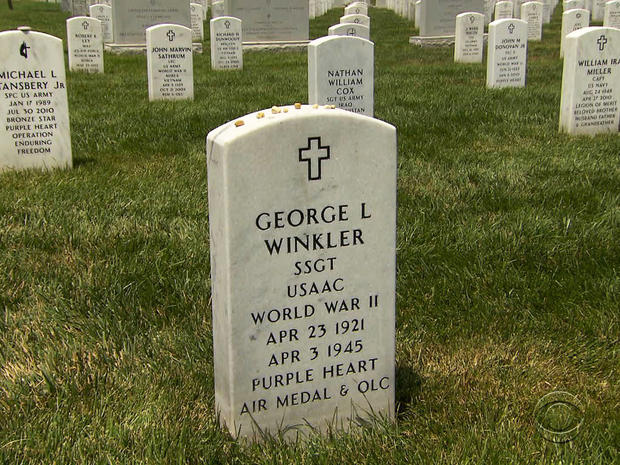Some troops killed in WWII still haven't been brought home
Update, Oct. 17: The Defense Department Inspector General's report was released today, detailing shortcomings and allegations of misconduct within JPAC.
ARLINGTON, Va. -- It took Mickey Beard decades of fighting Pentagon bureaucracy to get her older brother, Staff Sergeant George Winkler, buried at Arlington National Cemetery. He was killed in the Philippines in 1945, but not laid to rest at the cemetery until 2011.
"I couldn't get anybody to pay attention to me. They just said, well they didn't know what happened to him," says Beard
The Pentagon agencies responsible for identifying and bringing home America's war head have long been criticized by frustrated families and a draft report by the Pentagon Inspector General, obtained by CBS News, shows that criticism is well deserved.
The report says dozens of former and current employees, most with the Joint POW/MIA Command or JPAC, have filed complaints that "paint a picture of long-term leadership and management problems resulting in a hostile and dysfunctional work environment."
There is no "clearly defined mission," no "strategic plan," and no "single ... database that identifies the missing from past conflicts." The report says there has been a lack of coordination that leaves the Pentagon agencies "unable to know who is actually missing."
In February, Defense Secretary Chuck Hagel ordered a major shake-up. "And what that means to families is, first, they will be communicated with clearly, directly and it will be communications from one central location. That has not been the case," said Hagel.
But many World War II families believe they've been all but forgotten. "They are probably waiting for all of us to go away," says Beard.
The government holds annual meetings for the families of those killed in Korea and Vietnam, and even pays for travel. But World War II families, like Beard's, get none of that.
While the government has pushed to get family DNA samples for 80 percent of the missing from Korea and Vietnam. They've collected less than five percent from families of World War II MIA's, making them harder to identify.
Beard does not think his brother was treated like a war hero. Instead was treated like "somebody that didn't come home."
Beard hopes that when the Pentagon releases the report on what's wrong, JPAC will make it right and bring the thousands of other heroes still missing back home.
JPAC declined to respond to the Inspector General's report until the report is made public.
